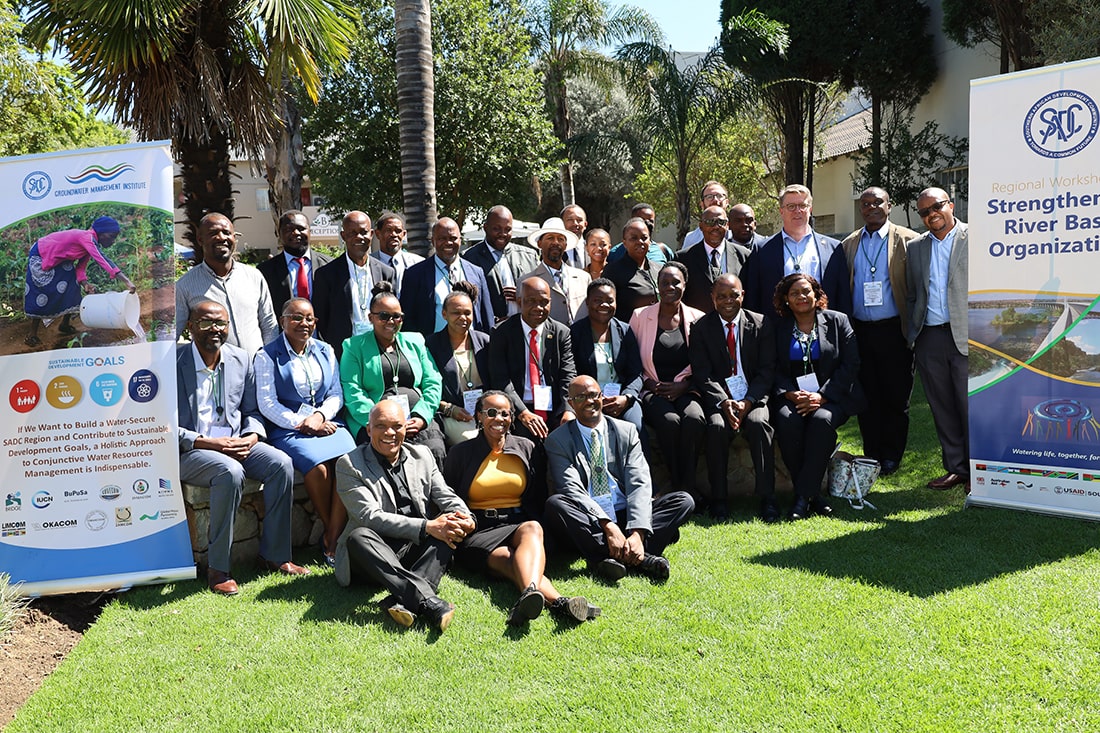SADC-GMI is Unlocking Sustainable Water Management through revision of the SADC Water Policy (2005)
Water scarcity poses a critical challenge in the Southern African Development Community (SADC) region, necessitating updated policies that reflect contemporary realities. Agriculture-dependent regions like Southern Africa require effective water management strategies to enhance livelihoods and drive economic growth. However, outdated policies can hinder optimal water resource management. In recognition of these issues, the SADC Secretariat has developed various tools, including a Water Policy, which was last revised in 2005 and currently fails to incorporate emerging issues such as climate change impacts and the role of groundwater. To address these gaps and promote better water resource management, the SADC – Groundwater Management Institute (SADC‑GMI), utilizing funding from the Global Environment Facility (GEF) and the Multi-Donor Trust Fund Cooperation in International Waters in Africa (CIWA), working in partnership with the SADC Secretariat – Water Division and the contracted Consultant (Pegasys), is spearheading a crucial update to the SADC Water Policy (2005). This revision is necessary and an opportunity to enhance cooperation, resilience, and sustainable development across Southern Africa.

Empowering Collaboration: The SADC-GMI Workshop Unites Key Stakeholders for Sustainable Water Management. In the picture are participants from SADC Member States, River Basin Organizations, and Cooperating Partners who participated in the Workshop.
Bridging the Gap
Scheduled to be completed by August 2025, this policy update is a critical and necessary chance for the region to meet its water management plans with the current environmental state at play. Delegates from governments, River Basin Organizations, and cooperating partners from the SADC region converged in Johannesburg, South Africa, from April 8–11, 2025, at the recent Regional Stakeholder Workshop to contribute key insights on the revised SADC Water Policy (2025). The revised policy will integrate insights from diverse stakeholders, fostering inclusive dialogue.
Incorporating Fresh Perspectives
Mr. James Sauramba, Executive Director of SADC-GMI, emphasized the importance of updating the policy, noting that numerous changes since its last enactment require urgency. He highlighted emerging issues such as climate change and groundwater management that must be integrated into a holistic approach for effective conjunctive water resources management. This collaborative effort reinforces the importance of validating the policy, particularly as the 16 SADC Member States rely on it for guidance.
Moreover, Mr. Sauramba acknowledged the significance of gender mainstreaming in the updated policy, which seeks to ensure inclusivity and equity throughout implementation processes. This critical aspect ensures that no groups are left behind as the region works towards solving its water challenges.
A unified approach for sustainable solutions
The workshop, organized by the SADC‑Groundwater Management Institute and hosted in the Republic of South Africa, aimed to create a unified approach for sustainable water solutions in the SADC region. Ms. Duduzile Mthembu, Chief Director for Bilateral Relations in the South African Department of Water and Sanitation, expressed her appreciation for the participation of Member States and underlined the necessity of establishing a robust policy framework to tackle regional water challenges, particularly considering climate change. In her concluding remarks, she highlighted that enhanced commitment and clear direction are crucial for the SADC region to advance sustainability in water management, thereby promoting development and resilience against future threats.




